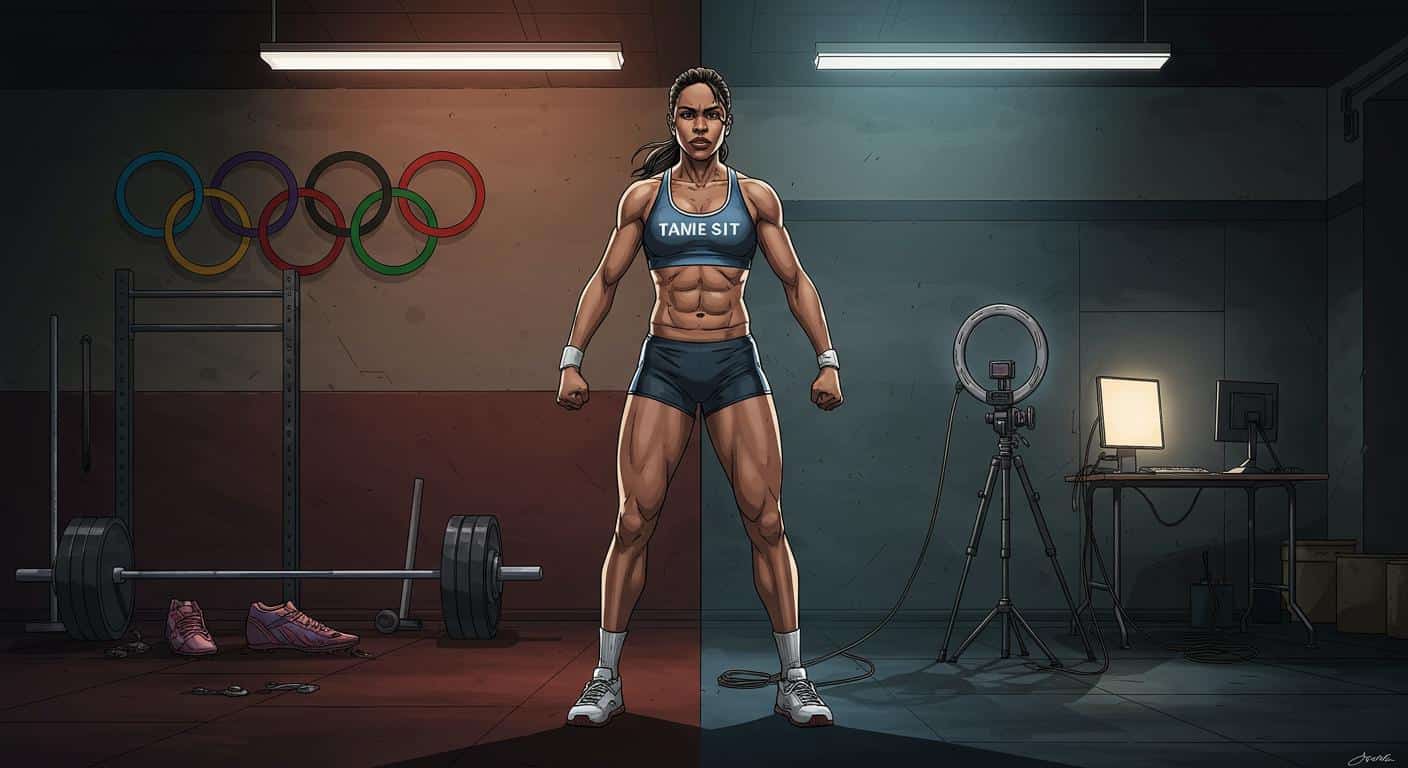Sometimes the line between absurdity and inevitability blurs so thoroughly that it’s hard to tell if we’re living in a biting bit of satire, or simply the logical endpoint of an underfunded athletic system. Case in point: British canoeist Kurts Adams Rozentals, who now faces what sounds for all the world like a fever-dream quiz show conundrum—according to BBC Sport, he must choose between maintaining his Olympic ambitions and keeping his OnlyFans account.
The modern athlete, it seems, is forced to navigate not just performance and training, but the peculiar economics of 21st-century hustle culture.
Oars, Obstacle Courses, and OnlyFans
As detailed in the BBC Sport article, Rozentals—who joined the World Class Programme in 2022—was recently suspended from competition after “allegations” about his social media activity surfaced. The specifics are shrouded in official vagueness, but Rozentals suspects the issue is his OnlyFans presence, given the platform’s adult content reputation.
Rozentals shared with BBC Sport that he has posted nearly 40 videos and over 100 photos on OnlyFans since January, using his Instagram as a funnel for would-be subscribers. This was no stunt for notoriety—he describes the effort as a financial lifeline to support his Olympic quest. The numbers back that up: Rozentals says he’s earned more than £100,000 since starting the account. The irony is hard to miss; it’s a sum that vastly outpaces what most athletes receive via their official stipends.
On Paddle UK’s World Class Programme, athletes are granted £16,000 a year for training, according to details set out in the same BBC report. Rozentals points out that this “is nowhere near enough,” especially when factoring in London’s rents, travel, and food. He recounts years spent shuttling between the East Midlands and London, unable to uproot himself due to family financial struggles—a story he relates with a resigned clarity that’s as much about logistics as hardship.
Funding, Image, and the Morality Debate
The financial strain isn’t unique to Rozentals. As noted in the article, Olympic diver Jack Laugher launched his own OnlyFans account in 2024 to make ends meet, posting competition-ready photos—think trunks and very little left to the imagination, as described by Laugher’s father. According to the BBC summary, this was a practical decision, endorsed by family as safe for even a grandmother’s viewing. Whether you find that surreal, admirable, or both, it’s an indicator of how blurred the lines between athletic performance, public image, and personal fundraising have become.
Returning to Rozentals, his abrupt suspension was described by Paddle UK to BBC Sport as an “interim action” rather than discipline. The aim, officials told the outlet, was to “protect all parties” pending an independent investigation by Sport Integrity. The official language—“neutral act,” “safeguard” other athletes, protect staff and volunteers—conveys a kind of delicate discomfort more than outright censure. Yet the effect, as Rozentals recounts, is isolating enough: barred from contact with teammates, staff, and any active competition.
According to the cited Athlete Disciplinary Policy, examples of gross misconduct include “offensive use of social media” and “indecent, offensive or immoral behaviour.” The elasticity of those terms, especially in a gig-economy world, is left for the investigation to parse. Rozentals reflects that he shouldn’t have to choose between financial security and chasing Olympic status—a logic echoed throughout the interview with BBC Sport.
Between a Paddle and a Paywall
With several details clustered in the article, Rozentals’s story becomes less about salacious headlines than about practical survival. Unable to rely on parental financial support, and with training costs eclipsing official stipends, he turned to a digital revenue stream that, for all its controversy, provided the economic stability years of athletic effort had failed to yield. As the BBC report emphasizes, this emerging trend—the “side hustle” athlete—pushes up against both the culture of amateurism and the persistent discomfort some officials have regarding athletes controlling their own branding and revenue streams, however unconventional.
The broader pattern, highlighted in the same BBC article, suggests this is far from isolated. When multiple world-class athletes leverage subscription platforms for basic survival, it begs the question: is the true indecency the athletes’ digital entrepreneurship, or the ongoing expectation that world-class Olympians subsist on stipends barely sufficient for rent?
The situation hangs unresolved—an investigation ongoing, policies under scrutiny, and Rozentals in limbo as “neutral measures” bar his return to the water. Yet, as described throughout the BBC coverage, the debate lingers over which is the greater risk to the integrity of sport: edgy social media feeds, or a future where only the independently wealthy can afford to compete at the highest level.
Reflections Amidst the Waves
Will future Olympians all need a knack for self-branding and online hustle as much as stroke technique? The world of elite sport is rapidly reshaped not only by training innovations but also by economic reality. If personal fundraising—be it through traditional sponsorships, crowd-funding, or digital platforms of all flavors—becomes less an exception than the rule, are we witnessing the final days of the so-called “pure amateur” ideal?
Or, as Rozentals’s journey prompts us to ask (rhetorically, but not without merit): is the insistence on outdated standards of propriety actually what risks making the sporting world less accessible, more bland, and less reflective of the real struggles athletes face today?
Perhaps the real surprise is not that athletes are uploading “spicy” content for rent money, but that the system still expects them not to. It’s a thought worth holding onto the next time you watch a race, a dive—or a paddle down some very choppy professional waters.







